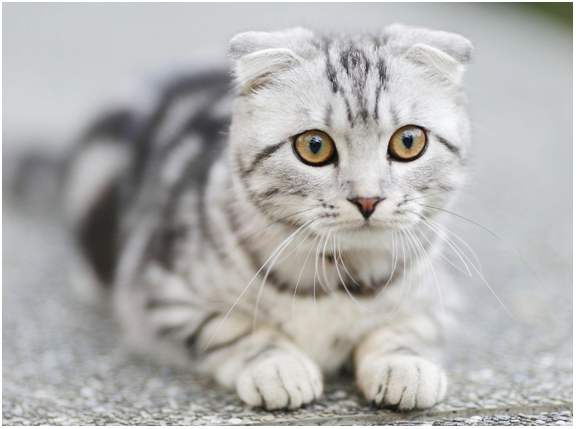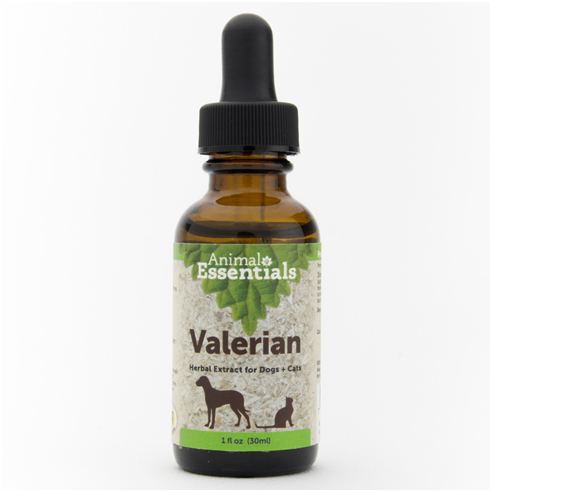A Guide to Cat Anxiety and Best Calming Herbs for Cats
Posted by Greg Tilford on Dec 1st 2021
When one hears “cats” and “herbs,” he or she typically thinks about catnip without hesitation. When a cat breathes in the unique aroma of this herb, specifically the active ingredient nepetalactone, they feel a sense of euphoria. Nepetalactone, an oil extract, binds to the cat’s olfactory receptors and stimulates neurons in the brain.
To answer your next question, yes: cats get “high” off of catnip. They roll around, drool, meow, purr-- a true (healthy and safe) state of delight. Plus, when cats happen to eat catnip, the opposite effect occurs: they mellow out.
This is because catnip is a mild sedative and leads to calming effects. Don’t be surprised if you feed your cat some catnip and they take a long “cat nap” afterward! But, not to worry: it is not addictive and it is safe for them to eat.
Catnip is just one herb that can have a powerful effect on cats and their behavior, as there are more advantageous herbs available for them. There are actually other calming herbs for cats beyond catnip that can provide them with a host of benefits and should be added to your pet owner’s toolbelt.
Just like we do, cats can react to their environment and situations and, yes, even get stressed out or feel a host of other emotions. In fact, anxiety in cats is not a rare occurrence. Experts estimate that about 20-25% of cats are treated for symptoms of anxiety.
Before we dive into the types of calming herbs for cats that can assist your cat feel less anxious, let’s take a closer look at cat anxiety.
What is Cat Anxiety?
Anxiety, whether it be felt by our pets or ourselves, is a nervous disorder that leads to feelings of uneasiness, worry, panic, and apprehension. Cat anxiety is just as the name for it implies: anxiety for cats. Their fight-or-flight response is continually activated, leaving them anxious and on-edge as they are almost always anticipating danger.
What Causes Cat Anxiety?
Cat anxiety can be caused by various situations and occurrences. Let’s have a look at the most common causes of the condition.
Separation Anxiety
One of the most common causes of cat anxiety is separation anxiety, which can be triggered whenever you leave your cat’s sight. This is actually common in many domesticated house pets and actually contributes to 10-20% of veterinary behavioralist cases. Separation anxiety can be a cause of abandonment issues, rehoming, and other such traumatic occurrences.
Sickness or Pain
When your cat is experiencing pain or is ill, they tend to show their discomfort through their behavior. Aging can certainly cause anxiety and other issues to be prevalent in your cat, as age-related illnesses can affect various systems and organs within the body. This, in turn, causes your cat to act differently from normal.
Socialization Issues
If your cat wasn’t properly socialized during the pivotal period of 7 to 12 weeks of age (know as the socialization period), then they may have cat anxiety that stems from socialization issues. During the socialization period, cats develop relationships with other living creatures. They learn key social skills so that, later in life, they are comfortable with others.
However, when they are properly socialized, they can develop cat anxiety and symptoms that can show when they are around any living creature that is strange to them. This is also true for outside stimuli, such as loud fireworks. Living with another pet that terrifies them can also lead to cat anxiety.
Traumatic Experiences
It’s possible that your cat’s anxiety is caused by trauma. A specific, terrible event can lead to an emotional response in an individual (this is true for cats and other mammals). That is what causes trauma, which can then lead to anxiety, among other potential afflictions.
If a cat suffered a traumatic experience, which could be rape, abuse (physical or emotional), accidents, animal attacks, and other such stressful events, they can suffer from trauma and, ultimately, anxiety.
Obsessive-Compulsive Disorder
While it is well-known that obsessive-compulsive disorder (OCD) can occur in humans, it is a lesser-known fact that it can also affect cats. Some breeds, like Siamese cats, are more susceptible to it, as they are genetically predisposed to OCD. OCD in cats can then lead to cat anxiety as well.
What Are Cat Anxiety Symptoms?

There are several telltale signs and symptoms for cat anxiety to look out for as a cat owner. These signs can manifest in different ways and manners depending on the level of anxiety severity. Here are common symptoms of cat anxiety:
●Missing the litter box
●Avoiding eye contact
●Tail between their legs or kept close to the body
●Moving body or head away, even slightly
●Crouching
●Holding ears back or slightly to the side
●Staring
●Aggression
●Trembling
●Hiding
●Destructive behavior
●Over-grooming
●Vomiting and/or diarrhea
What Can You Do About Your Cat’s Cat Anxiety?
If you recognize any of these symptoms and/or your veterinarian has concluded your cat has anxiety, then take solace in knowing that you can now help your cat feel significantly better. There are fortunately a few effective ways for relieving stress and anxiety for your cat!
The first step is to first visit a veterinarian in order to rule out any underlying conditions or illnesses, to confirm your suspicions of cat anxiety, and to even find the direct cause.
You should also never yell at or scold your cat. If you do, you may exasperate their symptoms and overall anxiety. You should also ensure that they feel safe with you by comforting them. Plus, ensuring that they don’t feel confined or trapped is important, too.
Another excellent step to take is to provide your cat with calming herbs, which are natural, effective, and even enjoyable.
Calming Herbs for Cats to Help Cat Anxiety

Fortunately, there are natural and holistic solutions for alleviating your cat’s anxiety, such as calming herbs. Popular options for calming herbs for cats with cat anxiety are catnip, chamomile, hops, valerian root, lemon balm, skullcap, and California poppy (don’t worry: it doesn’t have any opiates).
At Animal Essentials, we have plenty of effective calming herbs and tinctures for cats available for you to safely give your feline friend.
If you are looking for more natural and herbal supplements to give your pet optimal benefits, then be sure to browse our other offerings. We are proud to provide pets and pet owners with the best supplemental products available because your pet deserves only the best.

